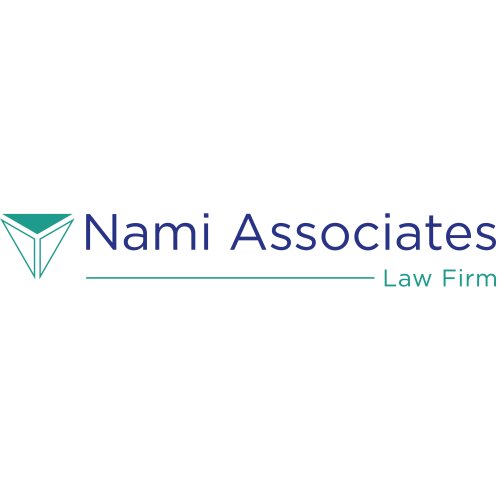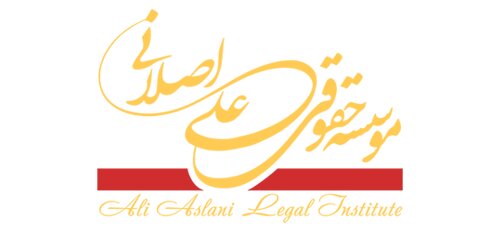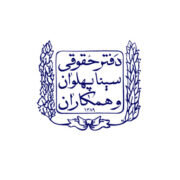Best General Litigation Lawyers in Tehran
Share your needs with us, get contacted by law firms.
Free. Takes 2 min.
List of the best lawyers in Tehran, Iran
About Litigation Law in Tehran, Iran
Litigation law in Tehran, Iran, is a comprehensive field that involves navigating a complex legal system with both civil and criminal aspects. Given Tehran's role as the capital city, it hosts a multitude of courts and legal entities, including civil courts, criminal courts, and special courts such as those that deal with trade and administrative law. Litigation can encompass anything from business disputes, contract issues, family law matters to more serious criminal allegations. Due to the intricacies of the legal framework, including specific procedural laws and religious considerations under Sharia law, legal proceedings in Tehran can be quite complex.
Why You May Need a Lawyer
There are several common situations where individuals may require legal help with litigation in Tehran. These include:
- Business Disputes: If you are involved in a business or commercial conflict, a lawyer can help mediate or litigate the issue.
- Real Estate Transactions: Disputes in real estate purchases or leases often require legal intervention.
- Family Matters: Divorce, custody issues, and inheritance disputes frequently need a lawyer's assistance.
- Crime Allegations: Being accused of a crime, whether minor or serious, mandates legal representation.
- Contracts Disputes: Any dispute arising out of a breach of contract may require legal interpretation and representation.
- Employment Conflicts: Issues such as wrongful termination or workplace disputes often require legal expertise.
Local Laws Overview
Litigation in Tehran is governed by a combination of Iranian civil codes, the Sharia law, and specific procedural laws. Key aspects of these laws include:
- Civil Procedure Code: Governs how lawsuits and claims are filed and managed in civil cases.
- Islamic Penal Code: Underlines criminal acts and penalties based on Islamic legal principles.
- Family Protection Law: Outlines legalities in family matters such as marriage and divorce.
- Commercial Code: Provides regulations for business and trade disputes.
- Arbitration Laws: Pertains to alternative dispute resolution processes.
- Contract Law: Dictates the legal framework for agreements and contractual obligations.
Frequently Asked Questions
What types of cases can be litigated in Tehran's courts?
Tehran's courts handle civil cases, criminal cases, commercial disputes, family law issues, property and real estate matters, and administrative cases.
Do I need to speak Farsi to navigate the judicial system?
While it is beneficial to speak Farsi, legal proceedings are generally conducted in this language. However, a competent attorney can bridge any language gaps.
What is the judicial process in Iran like?
The process usually involves filing a complaint, court hearings, evidence examination, and an eventual verdict. Each stage has specific procedural requirements.
How can I enforce a foreign judgment in Iran?
Enforcing a foreign judgment typically requires recognition by an Iranian court, subject to Iran’s legal requirements and international treaties.
What is the statute of limitations for filing a lawsuit in Iran?
The statute of limitations varies by case type, often ranging from two to ten years. Timely legal consultation is crucial.
Can I represent myself in a Tehran court?
While self-representation is allowed, it is generally not advisable due to the complexity of the laws and procedures involved.
What should I bring to a legal consultation?
Bring all pertinent documentation related to your case, including contracts, correspondence, and any prior legal notices or agreements.
Are there alternative dispute resolution methods available?
Yes, arbitration and mediation are widely used for resolving disputes outside of court, particularly in commercial and family law cases.
What is the role of an advocate or lawyer in Iranian litigation?
An advocate in Iran represents clients in court, provides legal advice, and ensures the proper interpretation and application of the law.
How are fees determined for legal services in Tehran?
Legal fees may be hourly or case-based and often depend on the complexity and nature of the case. Always discuss fees upfront with your lawyer.
Additional Resources
For those seeking more information or assistance regarding litigation in Tehran, the following resources may be helpful:
- Iranian Bar Association: Offers guidance and a directory of licensed attorneys.
- Tehran Judiciary: Provides information on the local court system and procedural guidelines.
- Legal Research Bodies: Institutes like the Legal Studies Institute offer comprehensive research materials.
- Local Embassies: For foreign nationals, embassies can offer legal resources and support.
Next Steps
If you require legal assistance in litigation, consider taking the following steps:
- Identify Your Needs: Clarify the specifics of your legal issue to better communicate with potential lawyers.
- Research and Select a Lawyer: Use directories, referrals, and consultations to find a lawyer suited to your case.
- Schedule Consultations: Meet with potential attorneys to discuss your case and understand their approach.
- Understand the Costs: Discuss and understand the fee structure and what services are included.
- Prepare Documentation: Organize all relevant documents before meeting with your lawyer.
- Follow Legal Advice: Once you've selected a lawyer, adhere to their guidance throughout the legal process.
Lawzana helps you find the best lawyers and law firms in Tehran through a curated and pre-screened list of qualified legal professionals. Our platform offers rankings and detailed profiles of attorneys and law firms, allowing you to compare based on practice areas, including General Litigation, experience, and client feedback.
Each profile includes a description of the firm's areas of practice, client reviews, team members and partners, year of establishment, spoken languages, office locations, contact information, social media presence, and any published articles or resources. Most firms on our platform speak English and are experienced in both local and international legal matters.
Get a quote from top-rated law firms in Tehran, Iran — quickly, securely, and without unnecessary hassle.
Disclaimer:
The information provided on this page is for general informational purposes only and does not constitute legal advice. While we strive to ensure the accuracy and relevance of the content, legal information may change over time, and interpretations of the law can vary. You should always consult with a qualified legal professional for advice specific to your situation.
We disclaim all liability for actions taken or not taken based on the content of this page. If you believe any information is incorrect or outdated, please contact us, and we will review and update it where appropriate.
















